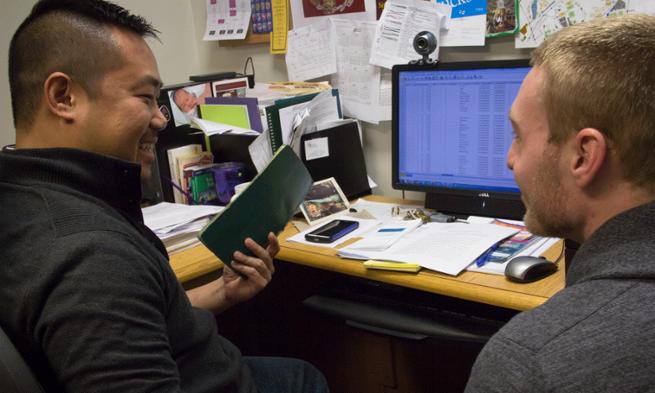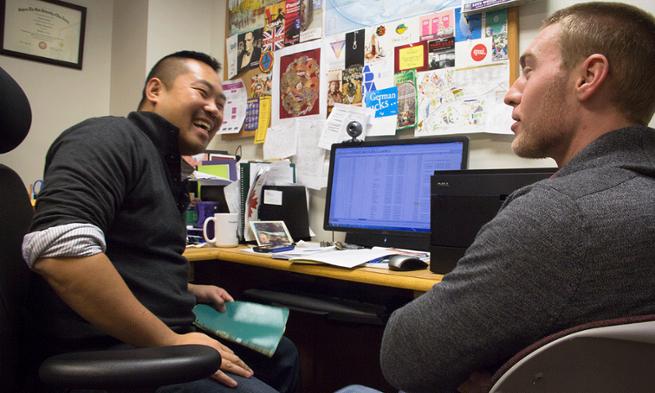Gaining a different mindset
JMU Psychology CARDS Lab helps students challenge preconceived notions
Health and Behavior
SUMMARY: Building a safe, and constructive, arena to analyze preconceptions about diversity has been a passion of psychology professor Dr. Matt Lee. To that end, Lee instituted the Cultural and Racial Studies, or CARDS lab, which has heightened the caliber of JMU research on the topics.
By Emily Tait (’15)
As news headlines attest, racial and cultural divides continue to stir controversy, even violence, across the nation.
Building a safe, and constructive, arena to analyze preconceptions about diversity has been a passion of psychology professor Dr. Matt Lee. To that end, Lee instituted the Cultural and Racial Studies, or CARDS lab, which has heightened the caliber of JMU research on the topics.
As part of the psychology department’s curriculum, the CARDS lab provides students with fundamental research skills, analysis training and a realistic lab experience. Taking on controversial topics with global ramifications such as affirmative action and transgender identity allows students to gain extensive knowledge and a new perspective on the application of psychology in the world.
'Topics researched in Dr. Lee’s [CARDS] lab specifically have opened my eyes to many issues that I never thought were important. I now have a different mindset.'
Currently, Ethan Bannar (’15) is the senior assistant on duty in the CARDS lab and heads up his own research team. He supervises other students, helping them run data collection protocols, and also creates their research schedule and trains the students on the research content. “As a leader in this lab, I see what things are going well or where students need help…so I can ensure the research is running efficiently,” he says.

While Bannar sees benefit in this opportunity to build leadership skills, he credits his experience in the CARDS lab with a greater, more profound impact: “I know that my time and work spent in this lab has been a crucial building block to my future studies in research and practice of clinical psychology. Topics researched in Dr. Lee’s lab specifically have opened my eyes to many issues that I never thought were important. I now have a different mindset.”
With his not-so-distant, post-grad future looming, Bannar expressed an interest in working with veterans who are diagnosed with Post Traumatic Stress Disorder through the practice of clinical psychology. After conducting a literature review of the leading treatments of PTSD, Bannar developed a desire to collaborate with law enforcement on this issue.
Thanks to the guidance of Lee, Bannar has realized that there is more to the application of psychology than just “helping people.” He says, “[My mindset] has grown into a goal to better understand and empathize with a population of people to potentially spread awareness and increase education to others.”
Bannar’s words echo other students’ experiences: JMU’s CARDS lab promotes a broadened, more enlightened, worldview.
